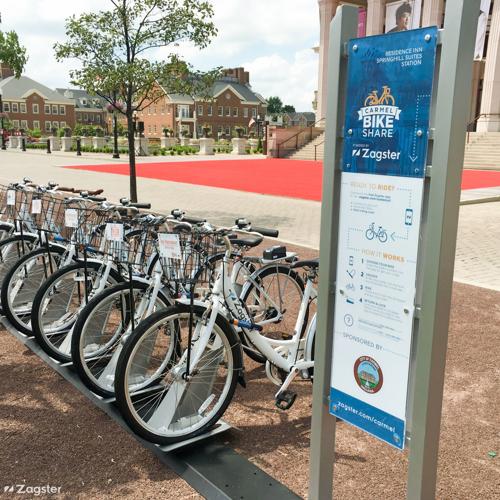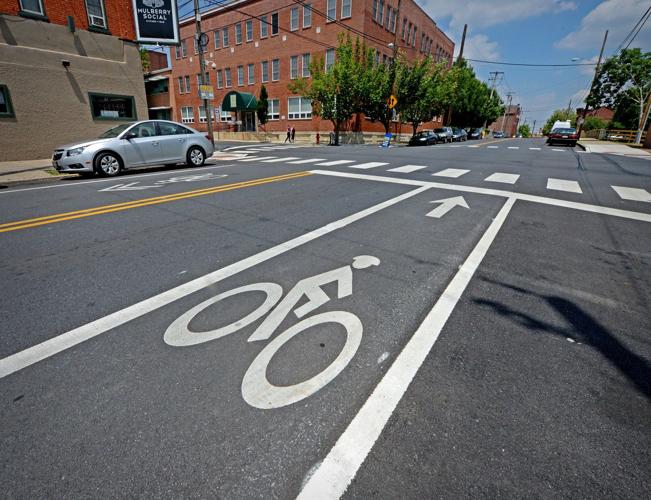The Lancaster City Bicycle Network is about to move off the drawing board and onto the street, followed by the launch of a long-planned bike share program.
The bike network’s first phase will be laid out on city streets later this year. Pavement painting will probably take place in August and September, public works director Charlotte Katzenmoyer said.
It will comprise about three miles of bike lanes — sections of a street reserved for bicycles — and about seven miles of bike “boulevards,” which are low-speed streets with relatively little traffic, where bikes and motor vehicles can safely share the road.
A principal bike boulevard will be Christian Street, connecting the Amtrak station with Lancaster's downtown, said Cindy McCormick, deputy public works director. It will include a section with a “contra flow lane,” which lets cyclists ride against prevailing traffic.

McCormick explained the plans to residents at a northeast neighborhood meeting Wednesday at Sixth Ward Park.
Phase 1 will implement portions of the city's walkability study, such as shortening turning lanes at intersections to add additional curbside parking, Katzenmoyer said.
Parked cars act as a barrier between traffic and sidewalks, contributing to pedestrian safety.
The city hopes to launch its bike share program once Phase 1 is done.
It is partnering with Zagster, a Cambridge, Massachusetts-based company that operates more than 135 bike-share programs nationwide. Its clients include cities, colleges and corporations.
Zagster offers an all-inclusive turnkey package, providing bikes, bike stations, customer service, logistics and other services.
Six stations are planned for the rollout, city environmental planner Karl Graybill said.
The city has identified initial locations, such as the Amtrak station on McGovern Avenue, the Red Rose transit station on North Queen Street and so on, but they can be moved if necessary, and new ones added at any time, he said.
A bike-share station with five bicycles costs $9,000 a year, which will be covered by sponsorships, Graybill said. The city is sponsoring one and is in the process of finalizing sponsorship agreements with other local organizations.
Revenue generated by the program will go toward ongoing operations, Graybill said.
The Zagster bike-share program in Carmel, Indiana, rents bicycles for $3 an hour, capped at $24 for a 24-hour period. There are also monthly ($15) and yearly ($30) options.
Pricing in Lancaster will be similar, Katzenmoyer said.
Lancaster's bike network fits into the county's active transportation plan, currently in development.
Officials intend to build out the network further in coming years, making Lancaster a thoroughly bike-friendly city and facilitating connections with other county trails, bikeways and greenways.
The full plan calls for bikeways along Walnut and Chestnut streets, set off from vehicle traffic. McCormick’s presentation showed a potential design for Chestnut Street, with bike travel in both directions and a single lane for motorized traffic.
Phase 1 will cost a little under $500,000. The city is putting up $90,000 in matching funds; the remainder is coming from grants, Katzenmoyer said.
At this point, there's no timeline or funding earmarked for any buildout beyond Phase 1, she said.
Editor's note: This article has been updated to add pricing information.






 TIM STUHLDREHER | Staff Writer
TIM STUHLDREHER | Staff Writer

